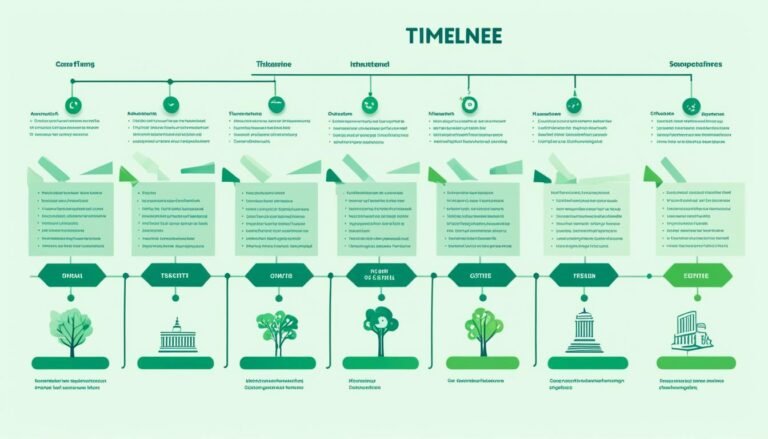Data Protection Best Practices for Irish Financial Services
Did you know companies that handle a lot of personal data, like financial or insurance ones, face greater data risk? The GDPR’s Recital 75 warns of dangers like identity theft and financial harm. So, safeguarding data is more important than ever before.
In Ireland, financial places like banks and investment firms play a big role in keeping customer data safe. They follow Data Governance Frameworks and set up strong Information Security Policies. This helps with Risk Management Strategies. Protecting against fraud and cyberattacks is key. It makes sure customer data is confidential, secure, and always available. This keeps trust and follows the rules closely.
Key Takeaways
- Companies handling large volumes of sensitive data have higher risk ratings.
- GDPR Recital 75 outlines potential harms such as identity theft and financial loss.
- Adhering to Data Governance Frameworks is crucial for financial institutions.
- Solid Information Security Policies are key to effective risk management.
- Prioritizing data protection ensures compliance and maintains customer trust.
Understanding GDPR Compliance for Irish Financial Services
The General Data Protection Regulation (GDPR) sets strict rules for handling personal data in the EU. For Irish finance, following these rules is key to avoid big fines. It also builds trust with customers.
What is GDPR?
GDPR is a set of rules to keep personal data safe for people in the EU. It tells businesses how to manage and protect personal information.
Importance of GDPR Compliance
For finance in Ireland, sticking to GDPR rules shows dedication to keeping customer data safe. Not meeting these rules could result in large fines. For example, Eni Gas e Luce faced a €3 million fine. Big names like Google and Facebook were also fined heavily. On the other hand, strong compliance helps win customer trust. It shows a company takes privacy seriously.
Steps to Ensure GDPR Compliance
Taking the right steps is critical for GDPR Compliance in Ireland’s financial sector:
- Conduct Data Protection Impact Assessments (DPIAs): For projects processing high-risk data, DPIAs are a must. They help find and fix data protection problems. This improves decision-making and communication.
- Embrace Data Protection by Design and Default: Make data privacy a part of all steps from the beginning. This ensures data is always protected properly.
- Continuous Employee Training and Awareness: Make sure your team knows GDPR rules. This prepares them to handle data privacy requests and questions.
- Maintain Thorough Records: Documenting data processing helps show GDPR compliance and lowers legal risks. It’s also crucial to have a GDPR officer and a list of your data.
- Consultation with Data Protection Commissioner: Speaking with the Commissioner is wise for risky data projects. It helps make sure you’re fully following GDPR.
In summary, GDPR Compliance is crucial for finance in Ireland. These steps help not just meet legal duties but also prove a serious commitment to data safety. This boosts trust and loyalty from customers.
Implementing Robust Cybersecurity Measures
In today’s digital age, cyber security is critical, especially for banks and others. Being proactive and using smart strategies can protect them from cyber dangers.
Assessing Cybersecurity Risks
First, we must understand the risks to fight cyber threats. These threats are always growing. The NCSC says cyber attacks are now aiming at important government and business data.
In 2021, a ransomware attack hit the HSE, affecting hospital services. This shows the huge impact cyber attacks can have. So, financial groups, who deal with a lot of private data, must see what risks they face.
Cybersecurity Tools and Technologies
To defend against cyber attacks, financial groups should use many tools. They need strong encryption, firewalls, and systems that can spot intruders.
These tools help prevent data leaks and they make sure the rules are followed. Using new technology helps build a strong shield against cyber threats.
Incident Response Planning
Having a good plan to react to security breaches is key. This plan should spell out how to find, report, and deal with threats quickly. The main goal is to keep the damage small and get back to normal as soon as possible.
Cyber attacks on finance are rising fast. So, having a clear action plan is very important. It lets finance groups keep working and keep their customer’s trust, even after a cyber issue.
The National Cyber Security Strategy has some main goals. It’s focused on making the NCSC stronger, protecting vital infrastructure, and developing the public sector. These efforts help keep the country safe from cyber harm and make our systems stronger.
Data Protection Best Practices for Irish Financial Services
Financial services keep changing, making strong data protection very important. This part looks at key data protection practices that Irish financial institutions should use.
Data Protection Impact Assessments (DPIAs)
Data Protection Impact Assessments (DPIAs) help find and cut risks linked to personal data use. They are big for following GDPR rules, especially for places like the Comptroller and Auditor General’s Office, the Revenue Commissioners’ Office, and Ireland’s Central Bank. Including DPIAs in planning lets them deal with possible data risks early.
Data Protection by Design and Default
Data Protection by Design and Default is crucial for making privacy a foundation in how businesses work. It means Irish financial groups start every project with privacy steps in place. With less data collection and better data security plans, groups like the National Treasury Management Agency (NTMA) lessen data breach risks and run data processing better.
Employee Training and Awareness
Employee Training and Awareness are key for keeping data safe. Regular training helps everyone keep up with new rules and best practices. Since 45% of data breaches in finance are due to human mistakes (ICO’s 2020/21 report), making a privacy-focused work culture is vital.
Bodies like the Financial Services Appeals Tribunal in Ireland lead by example in educating staff to prevent breaches and improve security.
Using these best practices can help Irish financial groups keep their data safe, prevent breaches, and keep customer trust.
- Understanding Data Protection Impact Assessments: Look at projects for data risk and meet GDPR rules.
- Implementing Data Protection by Design: Put privacy steps in each project stage.
- Enhancing Employee Training and Awareness: Regular training to follow rules and cut down on mistakes.
| Data Protection Element | Benefit | Statistics |
|---|---|---|
| Data Protection Impact Assessments (DPIAs) | Mitigate risks, ensure GDPR compliance | Used by key financial groups under the Department of Finance |
| Data Protection by Design and Default | Lower data risks, boost good data use | NTMA and other groups help set guidelines |
| Employee Training and Awareness | Stop data breaches, keep trust | Human mistakes cause 45% of finance sector breaches |
Ensuring Compliance with Global and Local Regulations
It’s vital for financial organizations to follow worldwide and Irish laws. Doing so protects customer info and lowers risks. Important global and Irish regulations and good record-keeping are crucial. They show compliance with the rules.
Key International Standards
Financial groups must meet world-level rules for safety measures. The main international standards are listed below:
- Payment Card Industry Data Security Standard (PCI DSS): Protects card data with strong access rules and network checks.
- ISO/IEC 27001: Helps keep info safe, acknowledged globally.
- SWIFT Customer Security Programme (CSP): Secures financial data during transactions.
Abiding by these rules drops the risk of cyberattacks. Companies in this sector are much more likely to get attacked. It also helps avoid big fines. For example, CaixaBank got a €6 million fine in 2021 for breaking GDPR rules.
Local Irish Regulations
In Ireland, financial groups must also meet local rules for data safety. The Data Protection Act 2018, putting GDPR into Irish law, is key. It requires:
- Mandatory checks for protecting people’s rights when high risks are involved.
- Privacy protections must be part of processes from the start.
- Training to make employees care about data safety.
Requirements like the 23 NYCRR 500 need regular checks by top management. Local rules ensure financial orgs do things right in Ireland.
Maintaining Records and Documentation
Keeping detailed records is essential for meeting regulations. Proper documentation offers several benefits:
- Assessment of Data Processing Activities: It helps check if data is handled following all laws and security standards.
- Implementation of Security Measures: Records show the steps taken to keep info safe from attacks.
- Audit and Investigation Readiness: Well-documented actions can lower the impact of violations or breaches.
Companies that are non-compliant may have to pay more for data breaches. But keeping good records saves money and shows a commitment to security. This helps financial groups follow rules and keep data safer.
Customer Data Security and Data Breach Prevention
For Irish financial services, keeping customer data safe is a top priority. It means making strong security policies, using the latest in cybersecurity, and having plans ready to act fast.
Verizon’s 2023 report shows 74% of data breaches involve people. So, training and making staff aware is key. This helps reduce mistakes that can lead to breaches.
The cost of data breaches worldwide was $4.45 million in 2023. Knowing the risks, Irish financial groups are working hard to prevent these costly problems.
Recent cases highlight the threat. For example, in August 2023, a breach at Tesla risked a huge fine. Also, Zellis’ breach in June 2023 affected big names like BBC and British Airways. This shows why good security and checks are so important.
Using encryption and keeping personal info private are big ways to stop breaches. It’s also critical to follow laws like GDPR, which demands strict compliance to protect private details.
Keeping data secure is essential for financial firms. By investing in solid security, with help from experts like JPMorgan Chase, they can earn customer trust and keep their good name even in a risky world.
Conclusion
Irish financial services must follow Data Protection Best Practices closely. The EU’s GDPR became enforceable on May 25th, 2018. It gave more rights to people and big duties to those using their data. So, strong awareness, policies, and rules are needed to protect personal data well.
Using top Cybersecurity Measures is key to stop data breaches. Important data shows the number of breaches in finance went down from 33% in 2009 to 22% in 2010. But, big breaches at places like Citigroup and Bank of America show the risks. It’s a clear sign that strong plans to react to breaches are a must.
Following worldwide and local rules is important to the law, builds trust with customers, and stops big harm. Entities that put these rules first, with the help of Data Protection Officers and groups like the Data Protection Working Group, are ready for the challenges. Cultivating a privacy and alertness culture is critical for the lasting success of Irish financial services.
Source Links
- Risk based approach | Data Protection Commission
- GDPR, Data Protection for Finance & Insurance
- Data Protection Impact Assessments | Data Protection Commission
- Guidance and templates
- General Data Protection Regulation (GDPR) Compliance Guidelines
- Why Is Cyber Security Important In The Financial Industry?
- Data Protection
- Overcoming key financial services compliance challenges
- Banking and Financial Data Security Compliance: Requirements & Best Practices | Ekran System
- Financial Institutions Regulatory Checklist | Arctic Wolf
- Ireland AWS Compliance Center – Financial Services for Cloud – AWS
- Top 9 Cybersecurity Regulations for Financial Services | UpGuard
- 10 Data Security Best Practices for Enterprise Protection | Ekran System
- How to Protect and Secure Customer Data
- Data Protection Policy 2020








